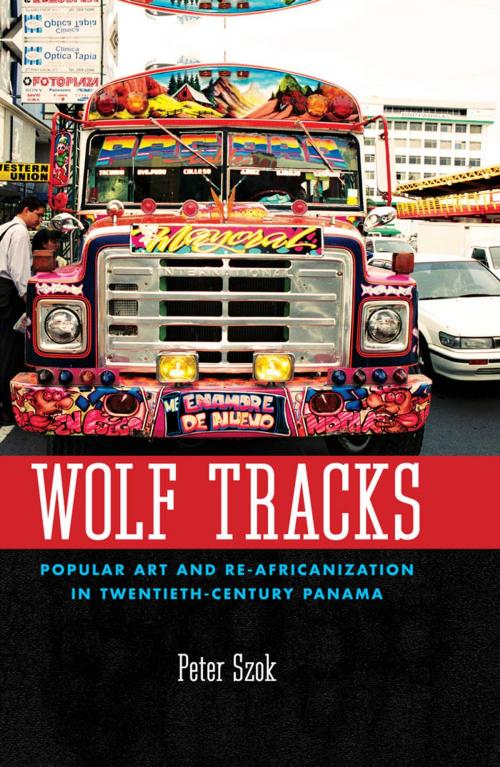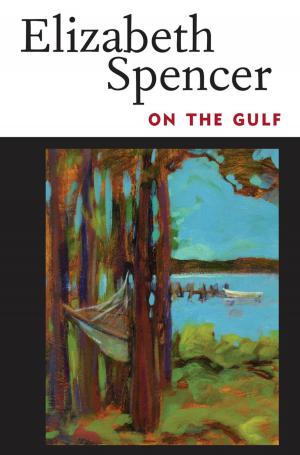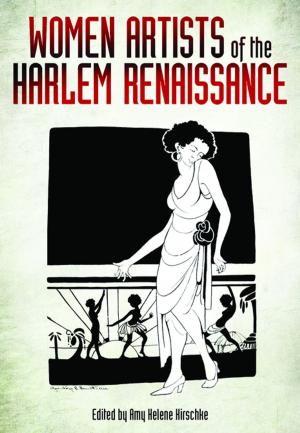Wolf Tracks
Popular Art and Re-Africanization in Twentieth-Century Panama
Nonfiction, Art & Architecture, General Art, Art History, American, History, Americas, Central America| Author: | Peter Szok | ISBN: | 9781617032448 |
| Publisher: | University Press of Mississippi | Publication: | April 18, 2012 |
| Imprint: | University Press of Mississippi | Language: | English |
| Author: | Peter Szok |
| ISBN: | 9781617032448 |
| Publisher: | University Press of Mississippi |
| Publication: | April 18, 2012 |
| Imprint: | University Press of Mississippi |
| Language: | English |
Popular art is a masculine and working-class genre, associated with Panama's black population. Its practitioners are self-taught, commercial painters, whose high-toned designs, vibrant portraits, and landscapes appear in cantinas, barbershops, and restaurants. The red devil buses are popular art's most visible manifestation. The old school buses are imported from the United States and provide public transportation in Colón and Panama City. Their owners hire the artists to attract customers with eye-catching depictions of singers and actors, brassy phrases, and vivid representations of both local and exotic panoramas. The red devils boast powerful stereo systems and dominate the urban environment with their blasting reggae, screeching brakes, horns, sirens, whistles, and roaring mufflers.
Wolf Tracks analyzes the origins of these practices, tying them to rebellious, Afro-American festival traditions, and to the rumba craze of the mid-twentieth century. During World War II, thousands of U.S. soldiers were stationed in Panama, and elaborately decorated cabarets opened to cater to their presence. These venues often featured touring Afro-Cuban musicians. Painters such as Luis "The Wolf" Evans exploited such moments of modernization to challenge the elite and its older conception of Panama as a country with little connection to Africa. While the intellectual class fled from modernization and asserted a romantic and mestizo (European-indigenous) vision of the republic, popular artists enthusiastically embraced the new influences to project a powerful sense of blackness. Wolf Tracks includes biographies of dozens of painters, as well as detailed discussions of mestizo nationalism, soccer, reggae, and other markers of Afro-Panamanian identity.
Popular art is a masculine and working-class genre, associated with Panama's black population. Its practitioners are self-taught, commercial painters, whose high-toned designs, vibrant portraits, and landscapes appear in cantinas, barbershops, and restaurants. The red devil buses are popular art's most visible manifestation. The old school buses are imported from the United States and provide public transportation in Colón and Panama City. Their owners hire the artists to attract customers with eye-catching depictions of singers and actors, brassy phrases, and vivid representations of both local and exotic panoramas. The red devils boast powerful stereo systems and dominate the urban environment with their blasting reggae, screeching brakes, horns, sirens, whistles, and roaring mufflers.
Wolf Tracks analyzes the origins of these practices, tying them to rebellious, Afro-American festival traditions, and to the rumba craze of the mid-twentieth century. During World War II, thousands of U.S. soldiers were stationed in Panama, and elaborately decorated cabarets opened to cater to their presence. These venues often featured touring Afro-Cuban musicians. Painters such as Luis "The Wolf" Evans exploited such moments of modernization to challenge the elite and its older conception of Panama as a country with little connection to Africa. While the intellectual class fled from modernization and asserted a romantic and mestizo (European-indigenous) vision of the republic, popular artists enthusiastically embraced the new influences to project a powerful sense of blackness. Wolf Tracks includes biographies of dozens of painters, as well as detailed discussions of mestizo nationalism, soccer, reggae, and other markers of Afro-Panamanian identity.















